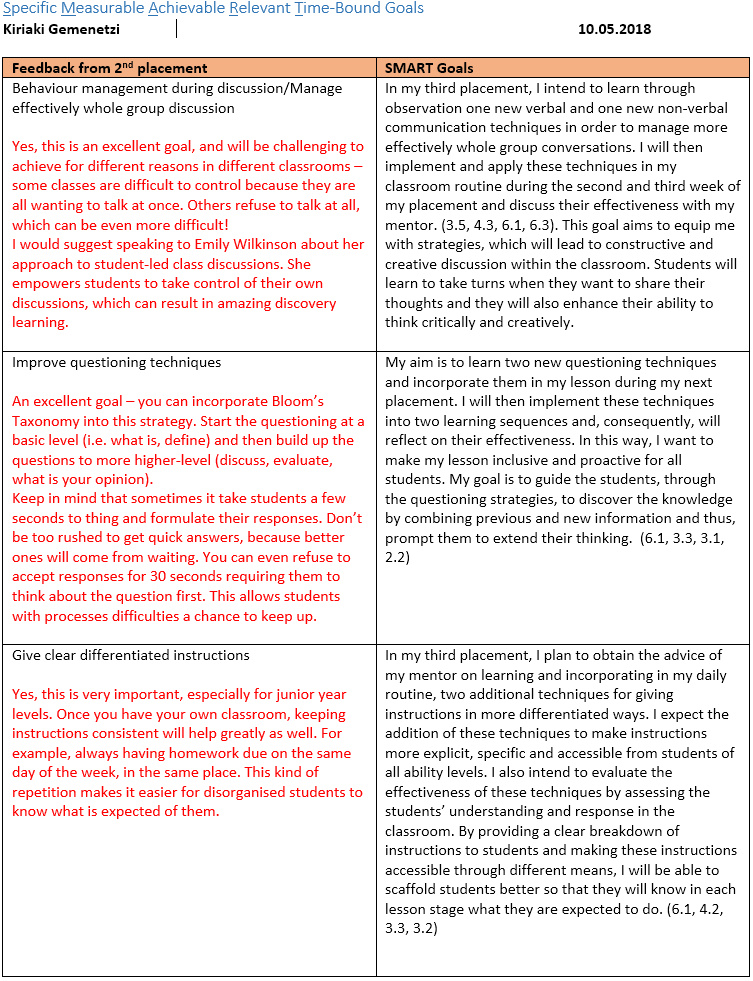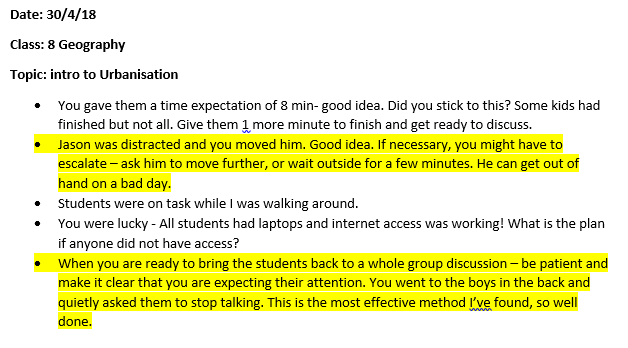Engage in professional learning
AITSL Standards 6.1, 6.3 & 4.3
Focus Areas
- Understands the Australian Professional Standards for Teachers (Graduate) and how to use them for setting improvement goals
- Discusses areas for improvement with Mentor
- Seeks feedback for improvement
- Reinforces Mentor’s expectations for behaviour management
- Establishes behaviour expectations
- Identifies behaviour problems in the classroom, seeks advice and acts upon that advice
Description
At the end of my placement, I used my reflections and my Mentor’s feedback to self-evaluate my practice and to create SMART goals for my next placement, targeting the areas where I needed improvement. I shared these goals with my Mentor and asked for her additional advice and confirmation (Picture 6.1, Slider 6.1). Farrell (2013) suggests that it is essential that teachers voluntarily engage in their professional development and that they employ such bottom up strategies in order to constantly improve.
One important SMART goal was to increase my knowledge on methods for coping with disrupting student behaviour during whole group discussions. To meet Standard 4.3, I kept an open discussion with my Mentor on this topic throughout my placement, where I observed problematic behaviours when they occurred and then discussed possible strategies to deal with such incidents. I then applied these strategies in class (e.g., relocating students that created commotion, or discreetly asking them to stop) (Picture 6.2). I observed that an arsenal of several such methods is a much needed skill in the classroom and knowing when to apply the right one can be highly effective, not only for eliminating problematic behaviour, but also by affecting learners’ communication skills and imposing explicit limits they should respect. In this way, they develop correct behaviours that extend beyond the classroom setting. This effect is also noticed in Lavan (2017) who asserts that learning and behaviour are very closely linked, as learning how to behave in a helpful way is a learning process much like any other learning process.
References
Farrell T.S.C. (2013) Reflective Practice in ESL Teacher Development Groups From Practices to Principles. London, UK: Palgrave Macmillan
Lavan, G. (2017). Managing Challenging Behaviour in the Classroom: A Framework for Teachers and SENCOs. Milton: Routledge
Evidence Artefacts

Picture 6.1: SMART goals for my next placement.
Slider 6.1: Emails exchanged with Mentor regarding the SMART goals.


